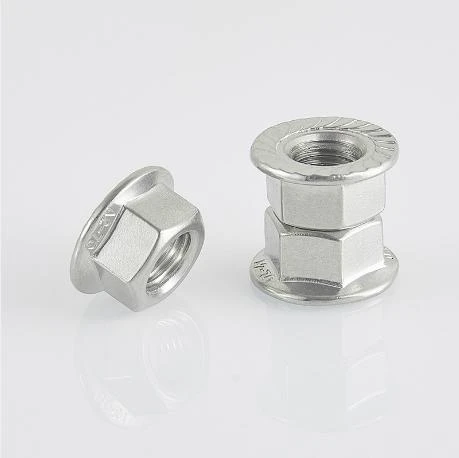

self tapping screws for plastic
Nov . 13, 2024 03:05 Back to list
self tapping screws for plastic
Self-Tapping Screws for Plastic A Comprehensive Guide
Self-tapping screws are a vital component in industrial and DIY projects, especially when it comes to fastening materials like plastic. These screws are designed to create their own holes as they are driven into the material, eliminating the need for pre-drilling. This unique characteristic makes them particularly advantageous when working with plastics, which can be more challenging to screw into than traditional materials like wood or metal. In this article, we will explore the various types of self-tapping screws suitable for plastic, their benefits, applications, and best practices for usage.
Types of Self-Tapping Screws for Plastic
There are several types of self-tapping screws that are specifically designed for use with plastic materials. The most common types include
1. Thread-Forming Screws These screws have a unique thread design that allows them to create a snug fit as they cut into the plastic. They are particularly useful for thermoplastic materials, where the threads can create a secure hold without causing the material to crack.
2. Thread-Cutting Screws Thread-cutting screws feature a sharper tip and cutting edges that remove material as they penetrate the plastic. These screws are ideal for harder plastics and can create a pilot hole, making them suitable for a range of applications.
3. Self-Drilling Screws Equipped with a drill point, self-drilling screws can penetrate plastic without the need for a pre-drilled hole. They are especially beneficial for thicker materials and offer strong holding capabilities.
Benefits of Self-Tapping Screws for Plastic
Using self-tapping screws for plastic offers numerous advantages
- Efficiency The ability of these screws to create their own holes saves time and effort in the assembly process, making them ideal for high-volume production.
- Versatility Self-tapping screws can be used with a variety of plastic types, including polyethylene, polypropylene, and polycarbonate, making them a versatile fastener choice.
- Reduced Risk of Damage Unlike other fasteners that may require drilling, self-tapping screws minimize the risk of damaging the plastic material during preparation.
- Strong Holding Power When properly used, self-tapping screws provide a secure hold that can withstand stress and strain, ensuring the integrity of the assembly.
Applications of Self-Tapping Screws in Plastic
self tapping screws for plastic

Self-tapping screws are used in a wide variety of applications involving plastic. Some common uses include
- Electronics In the assembly of electronic devices, self-tapping screws secure plastic casings, ensuring that components are safely enclosed and protected.
- Automotive Industry Many automotive parts are made of plastic, and self-tapping screws are employed to attach various components, from interior fittings to exterior body parts.
- Furniture Assembly Many modern furniture designs utilize plastic components. Self-tapping screws facilitate easy assembly and disassembly, enhancing convenience for consumers.
- Construction In the construction industry, self-tapping screws are used to fasten plastic sheeting, insulation panels, and other plastic elements to various frameworks.
Best Practices for Using Self-Tapping Screws in Plastic
To ensure optimal performance and avoid potential issues when using self-tapping screws in plastic, consider the following best practices
1. Select the Right Screw Type Different types of plastics require different screw designs. Ensure you choose the appropriate self-tapping screw for your plastic material.
2. Use the Correct Screw Length The screw should be long enough to provide a secure hold without passing through the plastic entirely. Measure the thickness of the material and choose a screw length accordingly.
3. Apply Steady Pressure When driving the screw, apply steady and even pressure. Avoid forcing the screw, as this can lead to cracking or damage to the plastic.
4. Consider Pre-Drilling For especially hard plastics or in situations where precision is critical, consider pre-drilling pilot holes to guide the screws and enhance their effectiveness.
5. Check Compatibility Ensure that the self-tapping screws are compatible with any other materials they may encounter, such as metals or other plastics.
Conclusion
Self-tapping screws for plastic are indispensable fasteners in numerous industries and applications. Their ability to create their own holes and provide strong holding power makes them ideal for a range of projects. By understanding the different types available and adhering to best practices for installation, you can optimize your use of self-tapping screws and achieve successful results in your projects. Whether you are assembling furniture, working on electronics, or engaging in automotive repairs, these screws offer a reliable solution for fastening plastic efficiently and effectively.
Latest news
-
High-Strength Hot-Dip Galvanized Bolts-Hebei Longze|Corrosion Resistance&High Strength
NewsJul.30,2025
-
Hot Dip Galvanized Bolts-Hebei Longze|Corrosion Resistance&High Strength
NewsJul.30,2025
-
Hot Dip Galvanized Bolts - Hebei Longze | Corrosion Resistance, High Strength
NewsJul.30,2025
-
High-Strength Hot Dip Galvanized Bolts-Hebei Longze|Corrosion Resistance, Grade 8.8
NewsJul.30,2025
-
Hot Dip Galvanized Bolts-Hebei Longze|Corrosion Resistance,High Strength
NewsJul.29,2025
-
High-Strength Hot Dip Galvanized Bolts - Hebei Longze Metal Products Manufacturing Co., Ltd.|corrosion resistance&high strength
NewsJul.29,2025

